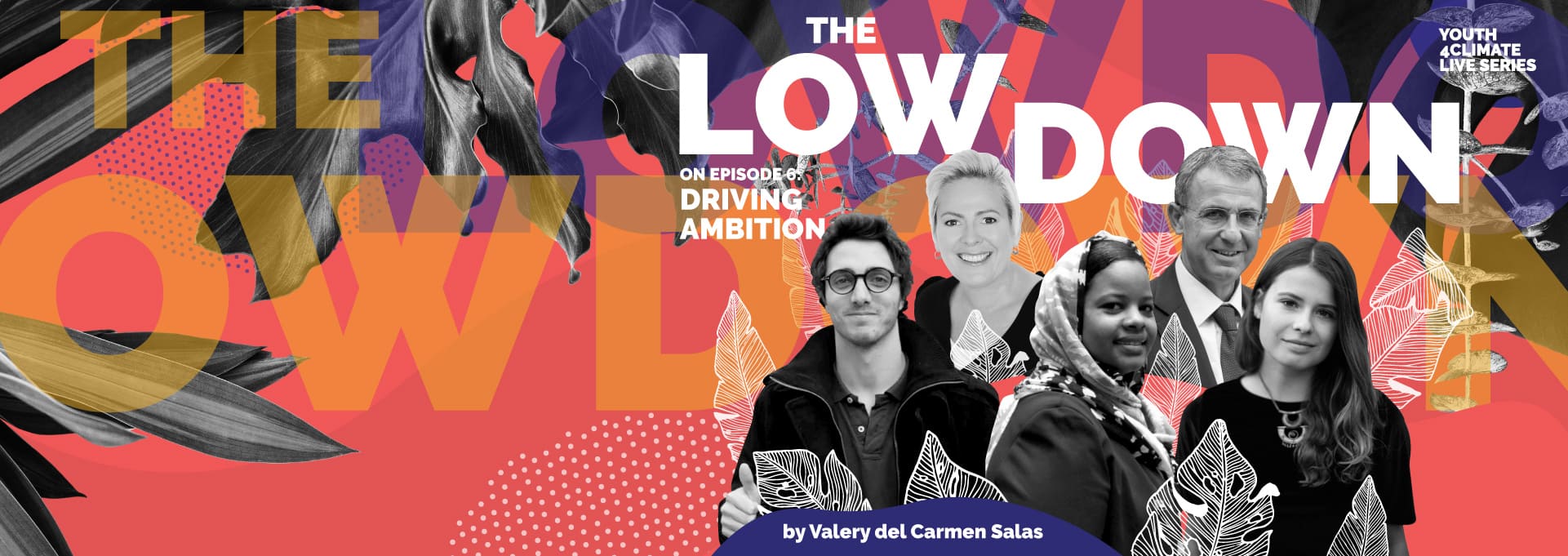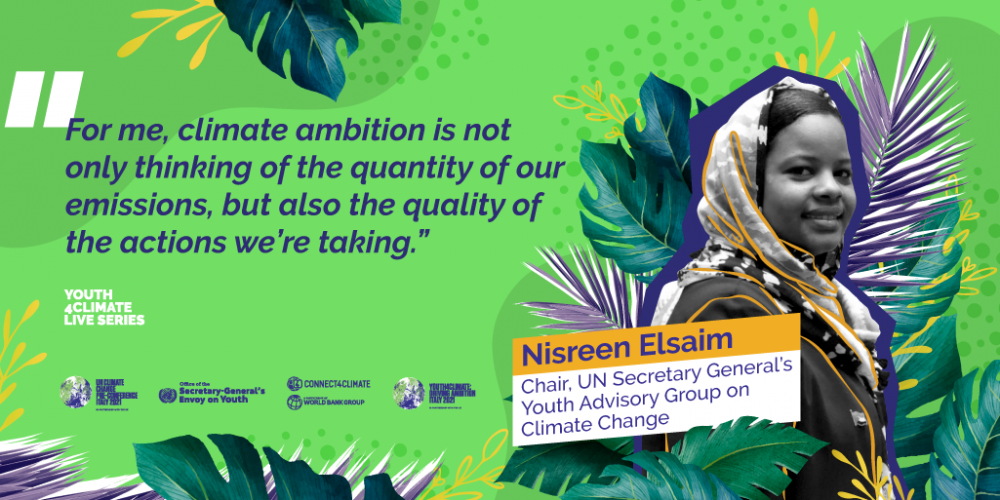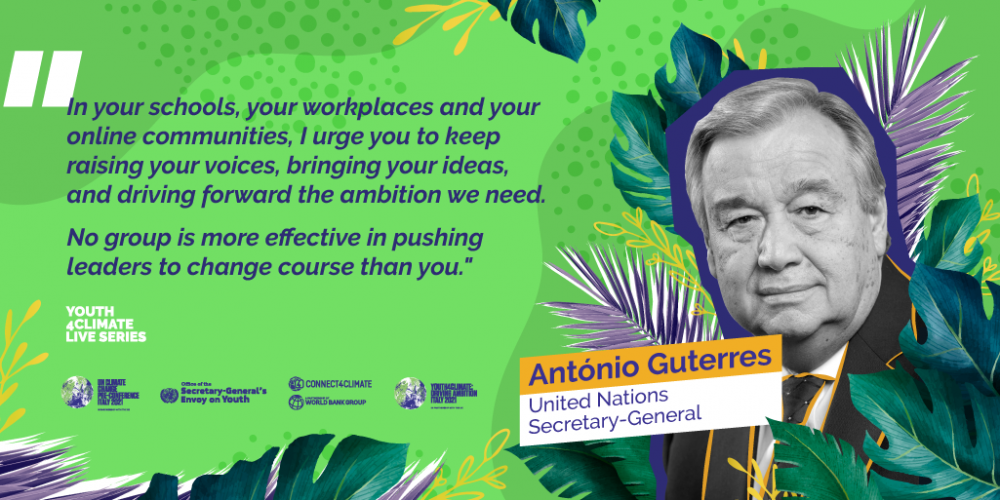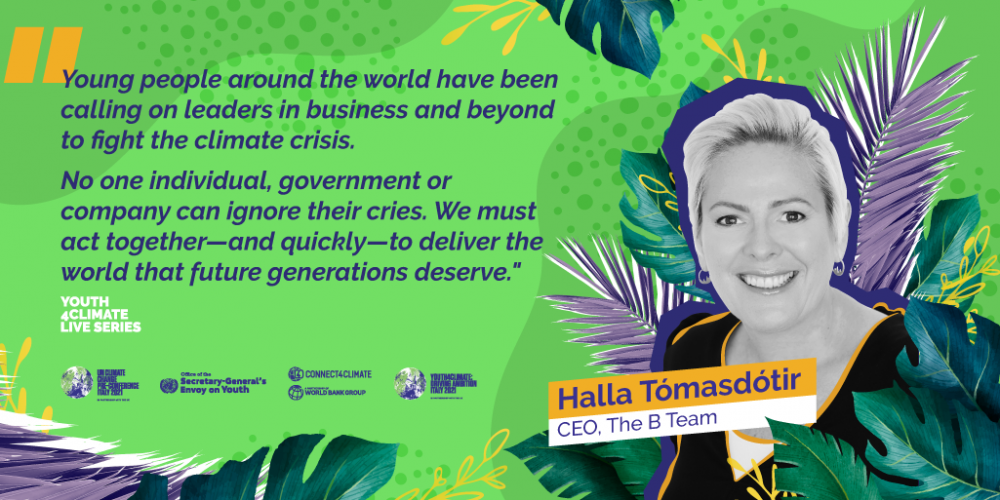
This session of our monthly #Youth4ClimateLive Series was extraordinary. Providing thoughtful reflection and inspiring breaths of hope, youth activists from the Global North and South joined policy veterans for a special discussion dedicated to Driving Climate Ambition.
Our already familiar cohosts Salina and Ahmed welcomed us into a space where government, the private sector and youth leaders could come together to unpack “climate ambition,” that famous buzz phrase.. What exactly is climate ambition? Well, that was the first thing we learnt. Climate ambition has different meanings for different stakeholders. However, all have the same core: a focus on people, concrete action, and accountability. We must continue to improve upon this framework, especially in favor of the most vulnerable.

As we heard from firsthand witness Nisreen Elsaim, Chair of the UN Secretary General’s Youth Advisory Group on Climate Change, the climate crisis is hitting her home country of Sudan hard, and the need for action is urgent. That’s why she calls for innovative solutions from outside the box and a rethinking of our current “business-as-usual” structures, which are not helping those who are currently left behind.
A message from UN Secretary-General António Guterres reinforced this idea, highlighting the climate crisis as “the most pressing issue of our time,” especially for younger generations. His words were not a call to surrender, but rather a clarion call to push for effective, sustainable and inclusive climate action.

And how can this climate action materialize?
The panel agreed that intergenerational cooperation at all levels is key to driving ambition. With this in mind, Italian Minister for Environment, Land, and Sea Sergio Costa was pleased to announce the topics of next year’s Youth4Climate event in Milan, which will set the stage for the Pre-COP and COP26. , Intergenerational cooperation is paving our way forward, building a road to COP26 in Glasgow that’s inclusive of education, science, climate action and more. This spirit of cooperation was captured well by Maximo Mazzocco of Eco House & Climate Alliance Argentina, who told us how youth in Argentina are driving climate action through civil society advocacy, embracing similarities rather than dwelling on differences in order to achieve common goals.
More and more countries are committing to net zero emissions by 2050, and Halla Tómasdóttir from The B Team told us how her organization’s work is helping to bring a climate-conscious human focus to the private sector. Investors, companies and supply chains have to be held accountable for their emissions and impact, and discussions with industry leaders need to incentivize continuous improvement.

Individual actions are also catalyzing ambition. In the words of Tómasdóttir, “Never underestimate your efforts as young employees. You can move the agenda. Bring your values to the table, to your voting, and use the power of your wallet. Get them going in the right direction: doing more.” Luisa Neubauer from Fridays for Future Germany, whose work exemplifies this approach, highlighted in her remarks that youth in the streets are researching the issues like never before and holding decision makers publicly accountable for their stances on climate.
There is always more to discuss when it comes to meaningful youth engagement, transparency, and shared responsibility. But in the end, discussion is only the beginning: we need real action if we’re going to beat the climate crisis. We all have roles to play, whether we represent government, the private sector, or simply civil society. We must work together to cut down emissions, meeting and going beyond the goals of the Paris Agreement without ambivalence or hesitation.



